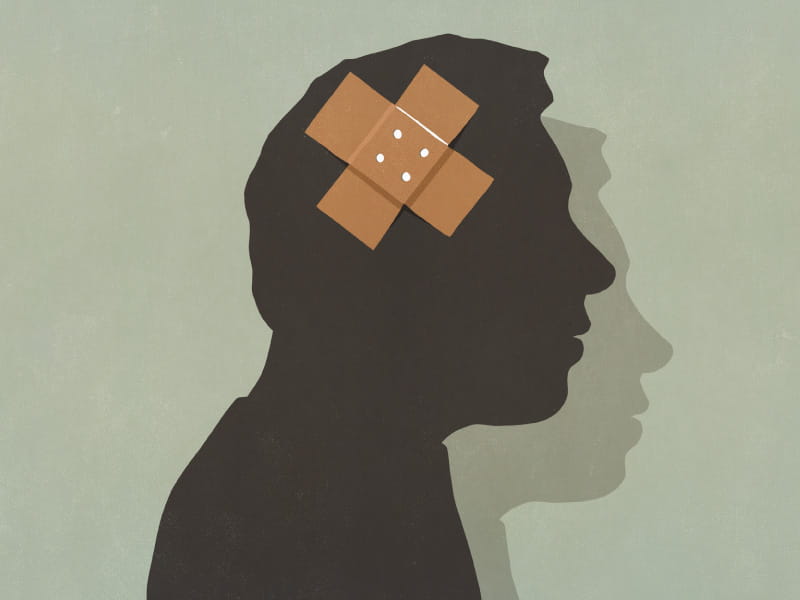Traumatic brain injury may raise veterans' long-term stroke risk
By Michael Merschel, American Heart Association News

Military veterans who had a traumatic brain injury may have an increased long-term risk of stroke, new research suggests.
The study, which used data from more than 610,000 veterans, found those who had a head injury were 69% more likely to have a stroke. That risk was highest in the first year after an injury but remained elevated for a decade or more. And risk was higher in those who had more severe injuries.
Prior studies have shown short-term associations between brain injury and stroke, said Dr. Andrea Schneider, lead researcher of the new study presented Thursday at the American Heart Association's Epidemiology and Prevention, Lifestyle and Cardiometabolic Health conference.
What the new study makes clear is "this risk persists for years after injury," said Schneider, assistant professor of neurology and epidemiology at the University of Pennsylvania Perelman School of Medicine in Philadelphia.
A traumatic brain injury is one that results in unconsciousness, confusion, amnesia or other neurological symptoms. About 450,000 service members were diagnosed with a traumatic brain injury between 2000 and 2021, according to the Department of Defense. Schneider said military personnel are exposed to specific risks, such as explosions, that can lead to such injuries. In the general population, people might experience them playing sports or in motor vehicle accidents. Among older people, falls are the most common cause.
To find out how traumatic brain injuries might relate to stroke, Schneider and her colleagues looked at data from 306,796 people in a Veterans Health Administration database who had a traumatic brain injury between October 2002 and September 2019. They compared those people's risk for stroke to an equal number of people who had not had a traumatic brain injury.
Researchers calculated 10.3 strokes per 1,000 people per year among those with traumatic brain injuries. That's compared to 5.7 strokes per 1,000 people per year in those without brain injuries.
After adjusting for factors such as income, education, smoking status, and medical and psychiatric conditions, the researchers found a traumatic brain injury increased the risk of stroke by 69%.
The increased risk varied by type of stroke.
For an ischemic stroke – the most common type, where blood flow to the brain is blocked – the risk was 56% higher in the veterans with traumatic brain injuries compared to those without. For a hemorrhagic stroke that causes bleeding into the brain, the risk was nearly four times higher in those with brain injuries.
The findings are considered preliminary until the full research is published in a peer-reviewed journal.
Dr. Mitch Elkind, a neurologist at New York-Presbyterian Hospital/Columbia University Irving Medical Center in New York City, said the more immediate increased risk of stroke after brain trauma might be related to damage such as torn arteries.
"But this study provides evidence that traumatic head injury may lead to a long-term increased risk of both ischemic and, particularly, hemorrhagic stroke," said Elkind, past president of the AHA. He was not involved in the study.
The findings should prompt further studies to identify reasons behind the connection, he said. "It may be that head injury is another insult, like the transient inflammation associated with infection, that increases long-term stroke risk."
It's possible that unmeasured factors such as medication use – or lack thereof – could account for these results, he said. For example, survivors of traumatic brain injuries may be more likely, "if they have associated cognitive problems, to be less adherent to medications for hypertension."
Schneider agreed more research is needed and the results must be replicated among the general population to confirm they apply broadly.
But, she said, the findings suggest people with brain injuries should be aware of the possibility of permanent damage that may affect their blood vessels. They should be extra aware of risk factors they can control, such as high blood pressure, diabetes and high cholesterol.
"We want everybody's diabetes and blood pressure to be controlled," she said. "But what this research may suggest is that maybe it's even more important in people who've had a traumatic brain injury."
If you have questions or comments about this story, please email [email protected].





